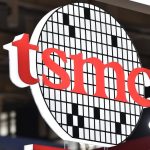In today’s decision in Raymond James & Assocs. v. Saba by Judge Matthew W. McFarland (S.D. Ohio), Saba had been an intern at Raymond James & Associates, a financial firm, but didn’t get a full-time offer. He then allegedly did the following (according to plaintiff’s Complaint):
On November 4, 2024, using several fictitious email accounts, Defendant began a cyber-harassment campaign (“the Campaign”) that spread false and malicious information about Plaintiffs. The emails, sent to fellow Raymond James employees, as well as individuals outside the company, accused Plaintiffs of illegal insider trading and rape; one email targeted Redvanly’s girlfriend at her place of employment and accused her of illegal insider trading.
In addition to the false accusations of criminal activity, some emails attempted to implicate Plaintiffs Redvanly [Defendant’s former mentor at the firm] and VanBenthuysen [another firm employee] in inappropriate romantic relationships. In fact, on December 8, 2024, an email sent to both Raymond James employees and outside email addresses intended to impersonate VanBenthuysen and another employee; the email implied that the two were engaged in an extramarital affair and included sexually explicit images. A separate false account further distributed this email to numerous members of the investment banking community, including firms that compete with Raymond James.
Defendant sent a similarly explicit email on December 15, 2024, implicating VanBenthuysen and a different Raymond James employee by purporting to report explicit communications between the two; this email was similarly sent to both Raymond James employees and external recipients. On December 21, 2024, yet another fictitious email account sent an email to both Raymond James employees and external recipients, this time impersonating VanBenthuysen’s wife and including another sexually explicit image taken from the internet. Plaintiffs allege that this conduct continued throughout the month of December 2024.
Then, on December 30, 2024, another email account impersonating a banker working for Raymond James invited numerous recipients external to Raymond James to join a fictitious neo-Nazi banking club. The email directed responses to VanBenthuysen’s Raymond James email address and included a PDF attachment that advertised the fictitious neo-Nazi club. Raymond James’ Cyber Threat Center, which had been working to uncover the perpetrator of these emails, examined the metadata on the attached PDF. The metadata revealed that Defendant was the author of the PDF.
On January 3, 2025, an additional false account sent a similar neo-Nazi banking club email with an attached PDF, and Defendant was again listed as the author of that PDF. The Cyber Threat Center also discovered that the visible digits of the recovery phone number for one of the fictitious email addresses impersonating VanBenthuysen matched Defendant’s phone number. Further investigation revealed that the recovery email for the fake VanBenthuysen account was another email address used in the Campaign. The Cyber Threat Center’s findings led to the discovery of more connections between the multiple email accounts used in the Campaign. These email accounts all shared Defendant’s phone number.
Finally, on January 6, 2025, another email impersonating VanBenthuysen was sent to over 200 third-party recipients and included a similar neo-Nazi club invitation. As with the prior PDFs, Defendant was listed as the author on this invitation. The same day, Raymond James’ in-house counsel issued a cease-and- desist letter to Defendant by email, demanding that Defendant stop the Campaign. Defendant confirmed by phone that evening that he had received the letter. This was the first time Plaintiffs had informed Defendant that they had discovered he was the perpetrator of the Campaign. Plaintiffs are not aware of any further email attacks since the issuance of the letter.
Due to the barrage of emails and resulting security threats, Raymond James closed its Atlanta offices on January 7 and 8, 2025. Plaintiffs have expended significant financial resources to repair the damage to their personal and professional reputations and to discover the source of the emails….
Plaintiffs sued for, among other things, defamation, and immediately sought a temporary restraining order and permanent injunction. The court concluded that plaintiffs had reasonably tried to serve defendant, and failed through no fault of their own, so a decision could properly be made without defendant’s participation. The court also concluded that a preliminary injunction in this case would be an unconstitutional prior restraint:
A portion of Plaintiffs’ requested relief directly implicates the First Amendment by seeking to enjoin Defendant from “[s]ending … any emails or other communications” about the Plaintiffs, employees of Raymond James, or the significant others of VanBenthuysen and Redvanley, and from “[p]ublishing defamatory material” about them. This amounts to a “classic example” of a prior restraint—”just a fancy term for censorship.”
In considering a temporary restraining order that involves a “prior restraint on pure speech, the hurdle is substantially higher: publication must threaten an interest more fundamental than the First Amendment itself.” The proponent of a prior restraint must overcome the “heavy presumption against its constitutional validity.” This caution makes sense. After all, “[t]he special vice of a prior restraint is that communication will be suppressed, either directly or by inducing excessive caution in the speaker, before an adequate determination that it is unprotected by the First Amendment.”
Traditionally, “equity does not enjoin a libel or slander and [] the only remedy for defamation is an action on damages.” Courts following the colloquially named “modern rule” have developed a carveout for “a narrow and limited injunction” in specific circumstances. But, even then, there is an important qualification: “It is clear that where this ‘modern rule’ has been followed, there has been an adjudication of the merits before a permanent injunction has issued, and the judge or jury has made a final determination that the statements to be enjoined are false and libelous.” See also Goodson v. Republican State Leadership Comm. – Jud. Fairness Initiative (E.D. Ark. 2018) (“It appears wholly unprecedented, however, for a federal court to enter a preliminary injunction in a defamation case.”); Banks v. Jackson (D. Colo. 2020) (“[A] preliminary prior restraint, which is at issue here, is, in fact, something the court cannot do.”).
Relevant to our inquiry herein is Lothschuetz v. Carpenter (6th Cir. 1990), which announced the Sixth Circuit’s holding on the question of issuing an injunction against defamatory statements. Though the court would enjoin the defendant from making defamatory statements, it would “limit the application of such injunction to the statements which have been found in this and prior proceedings to be false and libelous.” Because the defendant in Louthschetz had defaulted on the question of liability, this amounted to an adjudication on the merits.
The Court also finds Saidak v. Schmidt, 501 F. Supp.3d 577 (E.D. Tenn. 2020), persuasive given its similarity to the posture and alleged facts here. In Saidak, the plaintiff sued the defendant for defamation and sought to prevent further defamatory statements in furtherance of the defendant’s “calculated campaign to defame, slander, and libel Plaintiff.” Specifically, the plaintiff sought to preliminarily enjoin the defendant from making any public comments about the plaintiff, his business, the lawsuit, or members of plaintiff’s family.
However, the court denied this request because it amounted to a prior restraint before a final adjudication on the merits had concluded that the statements were, in fact, defamatory. Preliminarily enjoining the alleged defamatory speech would have required the court to evaluate the speech and “at a minimum, pass judgment on the truth or falsity of that speech and its potential for harm.”
Thus is the case here. The Court cannot grant Plaintiffs’ broad request to enjoin Defendant’s speech at this time because it would amount to a prior constraint before a final adjudication. This is not to diminish the gravity of the allegations in this case, or the effects felt by Plaintiffs. But, as explained, the First Amendment and the corpus of case law on this point is unmistakable: the Court cannot preliminarily enjoin Defendant’s speech—let alone in an overbroad or imprecise manner—before a final adjudication on the merits. See, e.g., Renoir-Large v. Lane (S.D. Ohio 2011), report and recommendation adopted (S.D. Ohio 2011) (denying preliminary injunction because there had been no final determination and also noting the requested relief extended well beyond the allegedly defamatory statements previously made by the defendant); Oakley, Inc. v. McWilliams (C.D. Cal. 2012) (denying preliminary injunction on “prior restraint” grounds for defendant who had allegedly sent harassing emails to other employees, associates, and industry personnel with accusations of criminal activity, infidelity, and attachments of pornographic images).
This general prohibition on pretrial injunctions against alleged defamation (as opposed to permissible injunctions that follow a full trial on the merits) strikes me as correct, see Anti-Libel Injunctions.
Yet despite that prior restraint analysis, the court did restrict defendant at least from using certain email accounts in continuing his speech about defendants:
After thorough consideration and review, rather than enjoin Defendant from speaking to or about Plaintiffs, the Court restricts Defendant from accessing the email accounts previously used in the Campaign, as well from creating new email accounts in furtherance of the Campaign. In this way, the Court enjoins Defendant from continuing his course of conduct without issuing a prior restraint on his speech.
I take it that the court is thus allowing defendant to speak to or about plaintiffs using his other email accounts, which presumably are in his own name (since the “Campaign” had used “several fictitious email accounts”). Query whether this restriction, which would extend even to expressly anonymous speech (and not just speech impersonating someone else), should also be viewed as a prior restraint; but the court thought it was permissible.
To issue even this limited order, the court had to find (among other things) that plaintiffs had shown a likelihood on success of the merits of the defamation claim, and the court so concluded. It held that there was enough evidence the statements were false:
Defendant sent two emails to individuals employed by Raymond James, as well as to others outside of the company, stating that Plaintiffs Vanbenthuysen and Redvanly had been convicted of rape. Defendant’s specific statements are verifiably false, and inappropriate in the context of professional email communications….
And it held that there was also enough evidence that defendant was at fault, and indeed spread falsehoods intentionally and not just negligently:
Defendant created a network of fictious email addresses to spread numerous false statements about Plaintiffs. The repeated nature of Defendant’s conduct does not suggest an accident or negligence. Rather, Defendant’s scheme displays a specific intent to publish the defamatory statements.
Finally, the court also ordered defendant (1) not to come “within 100 yards of: (a) Plaintiffs VanBenthuysen and Redvanley; (b) the personal residences of Plaintiffs VanBenthuysen and Redvanley; and (c) any Raymond James office,” and (2) not to “delete or otherwise access “any electronic files concerning Plaintiffs” or “any email account used to transmit emails concerning Plaintiffs or any of their significant others.”
The post “Another Email Account Impersonating a Banker Working for [Plaintiff] Invited … Recipients … to Join a Fictitious Neo-Nazi Banking Club” appeared first on Reason.com.







